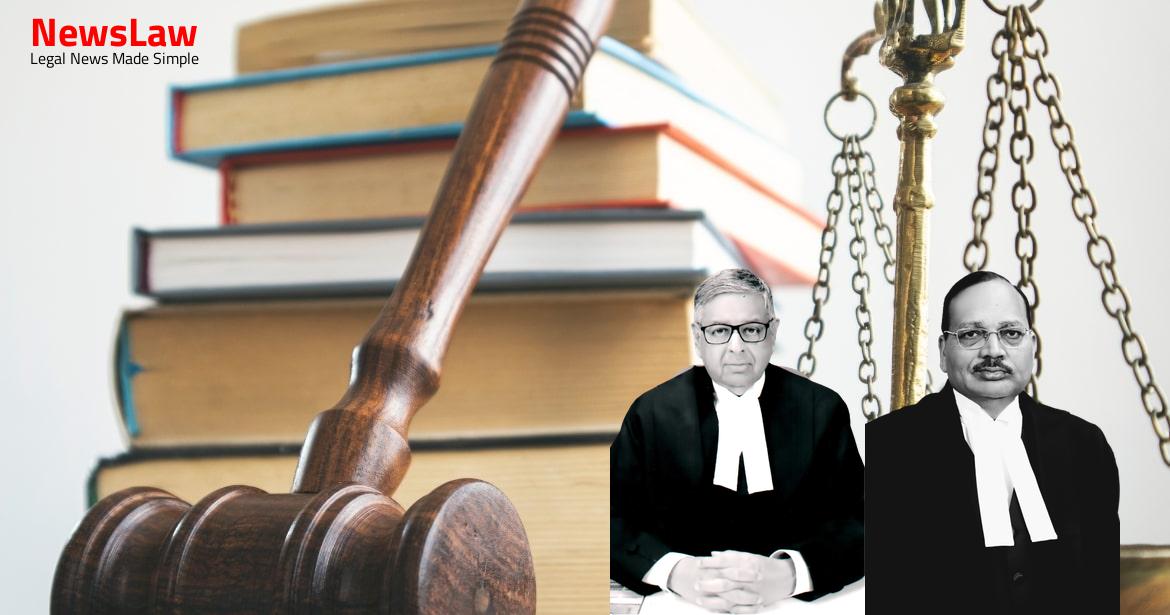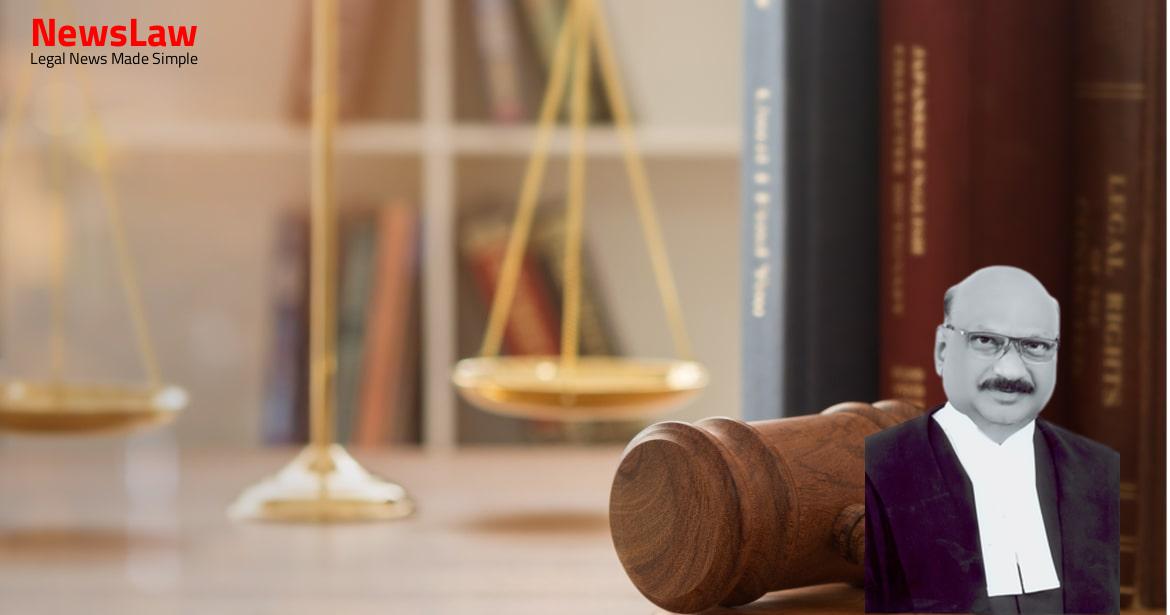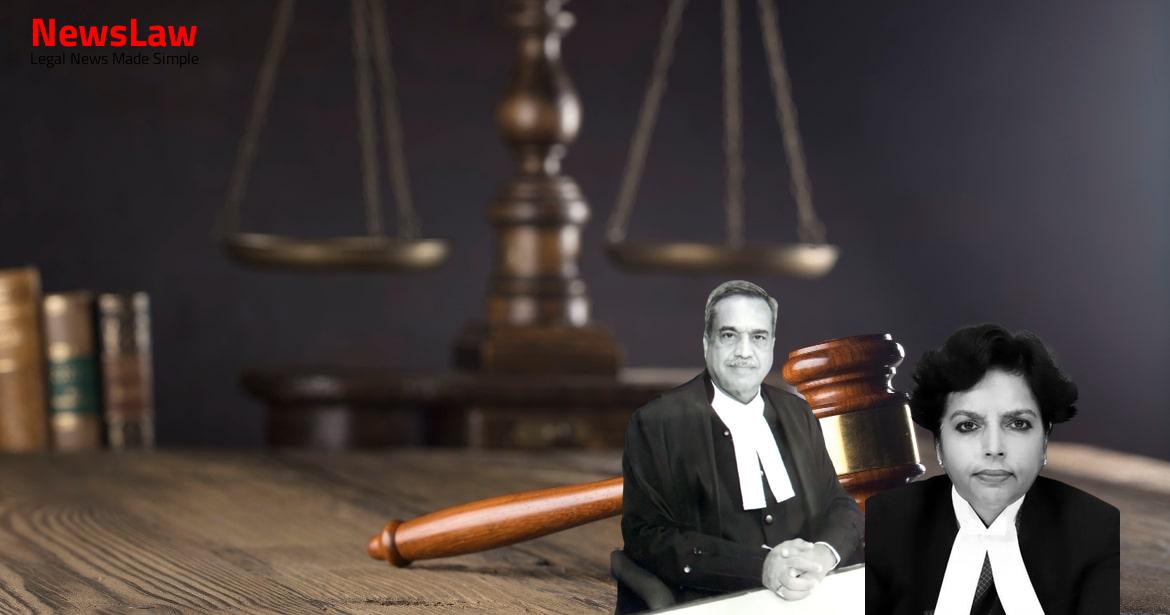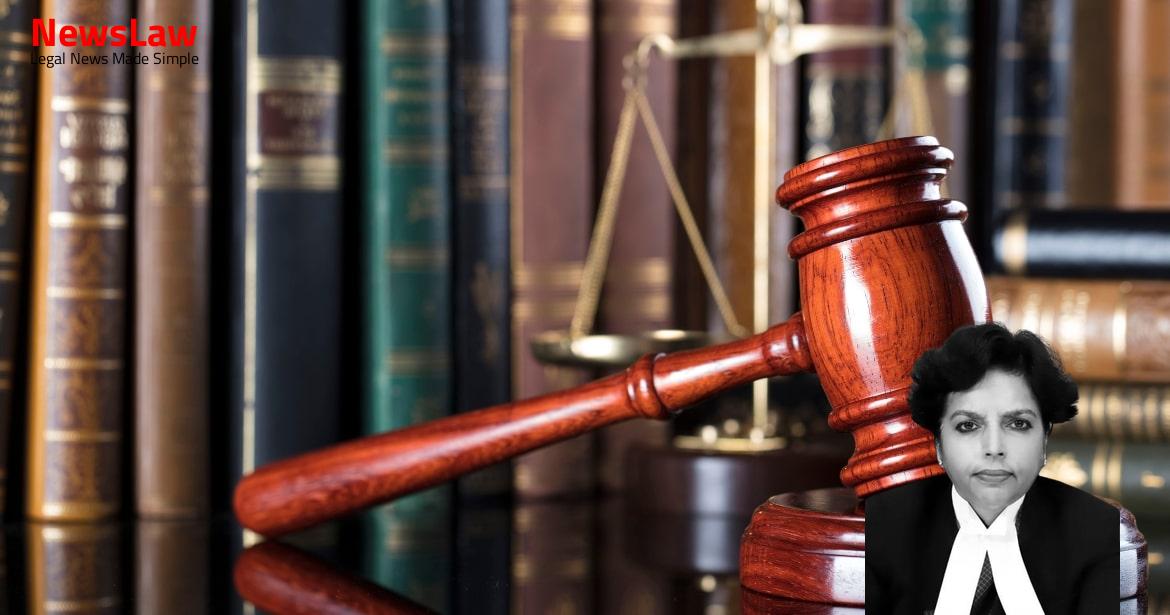The recent legal case delves into the intricate realm of legal analysis, emphasizing the crucial role of fairness and neutrality in judicial proceedings. The court’s meticulous examination of evidence, scrutiny of testimonies, and adherence to the standards of proof underscore the significance of upholding justice. Join us in unraveling the complexities of legal analysis in this compelling case.
Facts
- The learned Special Judge acquitted the appellants due to charges under the NDPS Act not being proved beyond reasonable doubt
- The trial Court criticized the fact that the complainant was also the investigating officer, causing prejudice to the fairness of the investigation
- The High Court set aside the acquittal and convicted the appellants for possession of charas under the NDPS Act
- The High Court noted that non-examination of independent witnesses would not be fatal to the case if efforts were made to secure their presence
- The High Court imposed a sentence of ten years rigorous imprisonment and fine of Rs 1,00,000 on each appellant
- Failure to include other locally-resident as neutral witnesses under Section 100(4) of CrPC was found to cast serious doubt on the prosecution’s version
- The High Court held that police officers’ testimonies should be subject to vigorous scrutiny and corroboration, which was met in this case
- The chain of events from seizure of contraband to its chemical analysis was found to be complete by the High Court
- At about 1.00 P.M. on 09.01.2002, a police team led by ASI Purushottam Dutt and comprising other constables were checking traffic at Shamshar when a motorcycle without a number plate was spotted.
- Both appellants asserted their innocence when questioned.
- The charas found was sealed and handed over to Karam Chand (PW3) by the police team.
- The appellants were formally arrested after the completion of personal search.
- Nine witnesses were examined by the prosecution, including eight police officials and one independent witness, Karam Chand (PW3). PW3 was declared hostile as he claimed not to have witnessed the seizure of the narcotics.
- The police witnesses provided strong corroboration for each other’s testimonies.
- Various documents such as spot map, arrest memo, search memos, consent memo, seizure memo, rukka seals, chemical analysis report, and charas samples were submitted as evidence.
- The appellants presented an alternative version stating that they had given a lift to an unidentified third person after visiting a nearby temple.
- The search was conducted on the appellants’ consent at the spot itself, leading to the discovery of polythene bags containing charas in a backpack carried by one of the appellants.
- The backpack was claimed to belong to the unidentified third person who allegedly escaped when the police stopped the motorcycle.
- Weighing of the polythene bags revealed 3kg 100gms of charas.
- Local residents were invited as witnesses but none agreed to participate.
- The facts leading to both appeals are common.
Also Read: Analysis of Suppression of Information in Employment Selection: Legal Perspective
Arguments
- The appellants claim bias due to delays, non-compliance of statutory mandates, and non-examination of independent witnesses.
- Arguments state that the complainant also being the investigating officer may have caused bias.
- Debate on the impact of the complainant being the investigating officer, with references to non-examination of certain witnesses.
- Appellants argue against the reversal of the acquittal by the High Court, citing conflicting versions of the incident and the presumption of innocence.
- Concerns raised about fairness and neutrality of the investigation due to the complainant also being the investigating officer.
- Distinction made between cases with no independent witnesses and those with conflicting testimonies from witnesses.
- The State counsel references a recent judgment on the permissibility of the complainant also being the investigating officer.
- Controversy over the importance of non-examination of independent witnesses, with the State counsel emphasizing the reliability of official witnesses’ evidence.
- Appellants argued investigation by the complainant is contrary to the scheme of the NDPS Act.
- The law on this point has been settled by the Constitutional Bench in Mukesh Singh case.
- Previous allowance of the complainant as the investigating officer leading to acquittal has been reversed.
- Failure of police to investigate alternate theories at Section 313 CrPC stage alleged to cause prejudice to the appellants.
Also Read: Analysis of Cheating and Forgery in Passport Case
Analysis
- The High Court found sufficient reasons to interfere with the acquittal and arrive at a different finding.
- The appellants admitted to being present on the spot and having interaction with the police, indicating a chance recovery.
- The trial court’s dismissal of the prosecution case was based on a misinterpretation of law.
- The contention that there were two varying versions of the incident does not hold weight for seeking acquittal.
- The seized contraband being carried by an unknown stranger story was deemed fanciful without evidence.
- The High Court relied on government officials’ testimonies after detailed re-appreciation of evidence.
- Statements by witnesses must be critically appreciated to bolster the prosecution case.
- The concept of ‘reasonable doubt’ and the duty of the court to remove all reasonable doubts in a determination of guilt were emphasized.
- Observations in the Mukesh Singh case were clarified as contentions, not findings.
- High Courts have the power to reverse acquittals and award appropriate sentences, exercising caution in practice.
- Imposition of an onerous standard of proof unsupported by statute was deemed unreasonable.
- Credibility of a witness had been impeached during trial, affecting his reliability.
- The need for presumption of innocence and removal of all reasonable doubts before determining guilt were reiterated.
- Prejudice to an accused or failure of justice must be examined with reference to the right to fair trial, presumption of innocence, and standards of proof.
- Decisions stating that the informant cannot be the investigator leading to the accused’s acquittal have been overruled.
- To benefit the doubt, the possible view in favor of the accused must be as nearly reasonably probable as that against him.
- A tainted investigation by a complaint who is also a witness to a substantial ingredient of an offense raises doubts impossible to establish the case beyond reasonable doubt.
- Accused persons in criminal cases with risks to life or liberty have rights under the Constitution, but fanciful and remote possibilities should be excluded.
- Previous court decisions acquitting accused due to the informant being the investigator are specific to their own facts and do not set a general precedent.
- Merely having the informant as the investigator does not necessarily vitiate the investigation on the grounds of bias.
- When two reasonably probable and evenly balanced views of evidence are possible, a reasonable doubt must be conceded.
- Non-compliance with Section 50 of the NDPS Act was not a valid claim at the stage of appeal.
- The safeguards for search of a person do not extend to a bag or other articles being carried by them, as per the State of Himachal Pradesh v. Pawan Kumar case.
- Since the narcotics were discovered from a backpack, compliance with Section 50 of the NDPS Act is irrelevant in this case.
Also Read: Discrepancy in Date of Birth: Court’s Legal Analysis
Decision
- Appellants’ bail bonds, if any, are cancelled
- Respondent-State directed to take appellants into custody to serve remainder of their ten-year sentences
- All pending applications are disposed of accordingly
- No merit found in the appeals
- Appeals dismissed
Case Title: RAJESH DHIMAN Vs. THE STATE OF HIMACHAL PRADESH (2020 INSC 607)
Case Number: Crl.A. No.-001032-001032 / 2013



